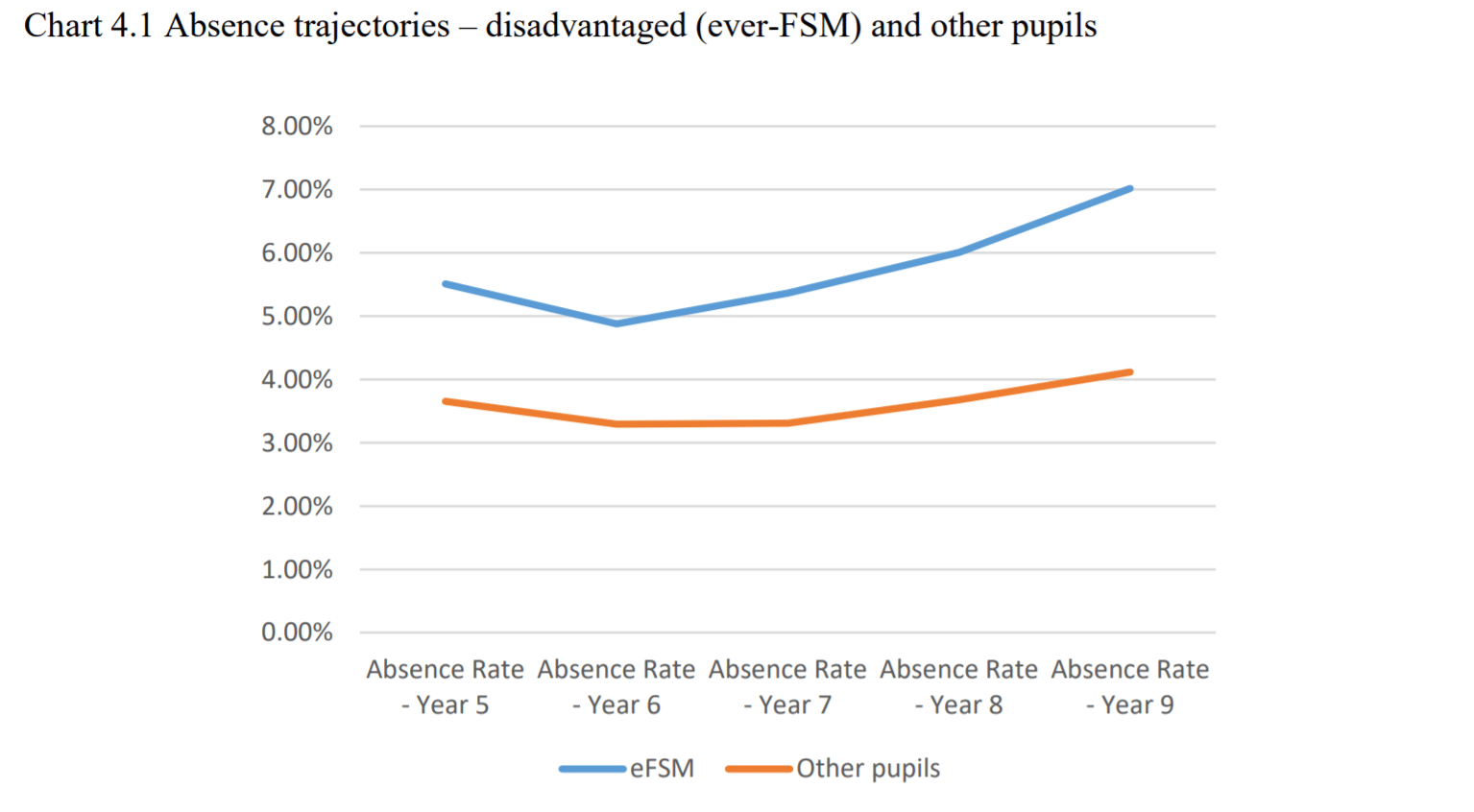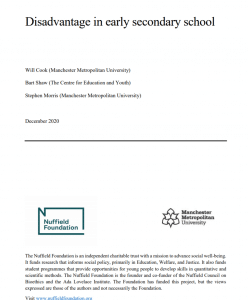Disadvantage in early secondary school
In partnership with Manchester Metropolitan University and the Nuffield Foundation
by Bart Shaw
10th December 2020
“By year 9 the average disadvantaged pupil has missed 33 days of school – equivalent to a month and a half of schooling, compared to 20 days for other pupils.”
Our new report reveals the extent of gaps between disadvantaged pupils and their peers in early secondary school.
Working with Manchester Metropolitan University and the Nuffield Foundation, we are today publishing a new report on the impact of early secondary school on academic outcomes for disadvantaged pupils. The report demonstrates the pressing need to support disadvantaged pupils more effectively in Key Stage 3 (KS3) and prepare them better during Key Stage 2 so they can make a successful transition to secondary school.
Key findings include:
- A disproportionate impact of the transition between primary and secondary school on disadvantaged pupils’ social and emotional learning and academic self-confidence.
- Limited impact of past policies designed to help disadvantaged pupils catch up during KS3.
- Disproportionate rates of absence for disadvantaged pupils during KS3.
Absence and progress
Disadvantaged pupils have a higher rate of absence at the end of primary school and this gap increases over the first three years of secondary school compared to other pupils. This is particularly worrying given that pupil absence during KS3 strongly predicts academic progress between from KS2-KS4, explaining a fifth of the gap in academic progress.

Bart Shaw, Head of Policy at The Centre for Education and Youth, said:
“Our findings reveal worrying trends in relation to pupil absence and demonstrate the importance of the transition from primary school into the early years of secondary school for disadvantaged pupils.”
Wider outcomes
Gaps are not limited to academic outcomes- our new research, conducted in partnership with Manchester Metropolitan University shows that academic self-concept, homework, behaviour and aspirations all diverge depending on socio-economic status as pupils progress through over Key Stage 3 .
New research by @TheCfEY, @ManchesterMet and @NuffieldFound shows how academic self concept, homework completion, behaviour and aspirations all diverge as pupils transition to secondary school Share on XTransitions
Our findings suggest that disadvantaged pupils will benefit the most from efforts to make the transition between primary school and secondary school smoother. In particular, disadvantaged pupils may benefit from:
- Better information sharing between phases
- Greater preparation for the KS3 curriculum, and the vocabulary and comprehension skills they will require in order to access that curriculum
- More preparation for the psychological impact of transition
These findings support and complement our recent study on the role of vocabulary at the primary – secondary school transition.
Recommendations
Based on our findings we are calling for:
- Targeted support to reduce pupil absence in year seven
- ‘Bridging units’ for pupils to start projects in primary school that carry on in secondary school
- New strands of training for teachers and leaders
- A review of best practice in improving attendance
Methods
Today’s findings are based on brand new analysis of large scale longitudinal data on the academic performance of school pupils in England aged 11-14, which included situations where students had missed out on education. The report combines an extensive new literature review with detailed quantitative analysis comparing outcomes for disadvantaged pupils between the ages of 11 and 14 with their peers.
As Bart Shaw explains:
“This research demonstrates the predictive power of school absence suggesting that schools and policy makers should do more to foster good school attendance. Based on our findings we feel confident that improving transition support across the early years of secondary school would have a powerful impact on pupils’ academic progress.”
Read the full report here
In partnership with:




